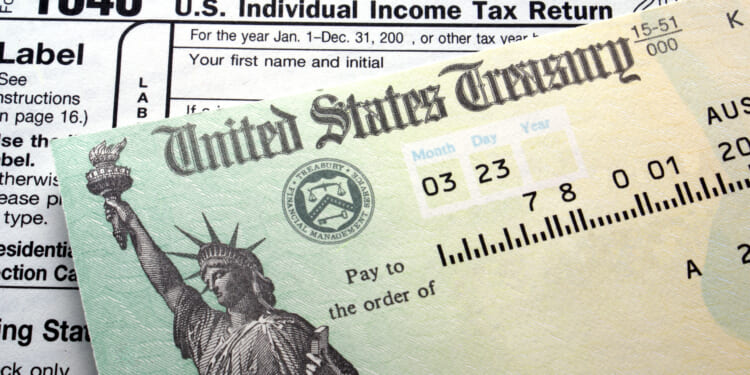- Those who support using government force to equalize income have the burden of proof to justify their view
- Unless actual acts of injustice are causing income differences, government intervention is unwarranted
- Where government policies cause income differences, the answer is to end those policies, not add more interventions on top of them
“The government should actively intervene to address income inequality” is a statement broadly accepted and promoted by progressives for decades.
But is such intervention justified?
The burden of proof lies with those favoring the government forcibly taking income from some to redistribute it to others in the name of smoothing out differences of income. To justify this government intervention, it must be shown that an injustice has occurred to create these income differences.
So, what are the main drivers of income differences?
For starters, much of income research examines household income. One can quickly see why household income comparisons can be problematic. Households with multiple income earners will naturally have an advantage over those households with one or no income earners.
Simply stating, for example, that there is a “difference of almost $40,000 between median household incomes in the first and third income quintiles” tells us nothing without knowing the average number of income earners in the households.
Census Bureau data for 2023 found that households in the lowest income quintile nationally averaged just 0.4 earners per household and that 64 percent of those households had no income earners at all. Conversely, households in the top quintile featured an average of 2.1 earners.
If households with more earners have higher incomes than households with no earners, it hardly sounds like an injustice needing government intervention.
There is also a difference in age and work experience between income groups. From 2021 IRS tax data, taxpayers nearest to retirement (ages 55 to 65) reported an average adjusted gross income (AGI) of $133,293. Considering that the average AGI for all taxpayers was $92,000 and the average for the 18 to 26 age group was $24,082, we can see that incomes tend to rise as taxpayers grow older and more experienced. Are we supposed to find this source of income differential objectionable?
Next we can look at education levels. Nationally, according to 2023 Census Bureau data, the median income for those with a bachelor’s degree was $67,256, compared with $39,428 for those with a high school degree, a difference of 71 percent. The difference between graduate degree earners and high school grads was, of course, even steeper. Are these financial returns on investments in human capital unjust?
There’s also differences in cost of living, for which most income comparisons are not adjusted. Simply put, someone in a lower income quintile living in a rural area could still afford a similar living standard as someone in the highest income quintile living in an urban area. Think about how much further income goes in rural Hyde County compared with uptown Charlotte.
Now we can consider personal choices and preferences in career path. Some willingly choose to work more hours, while others prefer a more moderate and flexible schedule. Some jobs are riskier than others and pay a premium for the higher threat of physical harm. Night shifts will typically pay a premium over day shifts, even for the same work. Some people will take jobs offering a lower salary but better fringe benefits.
Then of course there are those who willingly enter a profession that pays less financially but are rich in psychological satisfaction, such as charitable and social work, a tradeoff they willingly embrace.
The above reasons can explain a significant amount of income differences. Are they reasons that should cause alarm or massive government intervention? Is it unjust for those who have more education, have more job experience, work more hours, or live in an area with a high cost of living to earn more?
Reasonable people would say no.
This, however, is not the end of the story.
When income differences can be considered unjust is when they are the result of government intervention. Poverty traps created by welfare programs pin people down in low-income situations with perverse incentives. Government protectionism and favoritism create artificial and unfair subsidies to favored businesses and industries, providing a political boost to their finances. Federal Reserve money creation devalues the dollar, causing the working class whose incomes can’t keep pace to fall further behind the rising cost of living, while the already rich benefit from asset bubbles.
In such cases, the correction to the resulting unjust differences in income should be addressed by ending the intervention, not creating more interventions in an attempt to correct for the results of the original intervention.
The use of government force is unjustified in the absence of injustice. When it comes to differences in income, the majority of differences are explained by completely unobjectionable causes. Government intervention in the name of equalizing incomes is therefore illegitimate and can serve as a never-ending justification for ever-increasing government intervention into the economy and greater centralized control over economic decisions.











